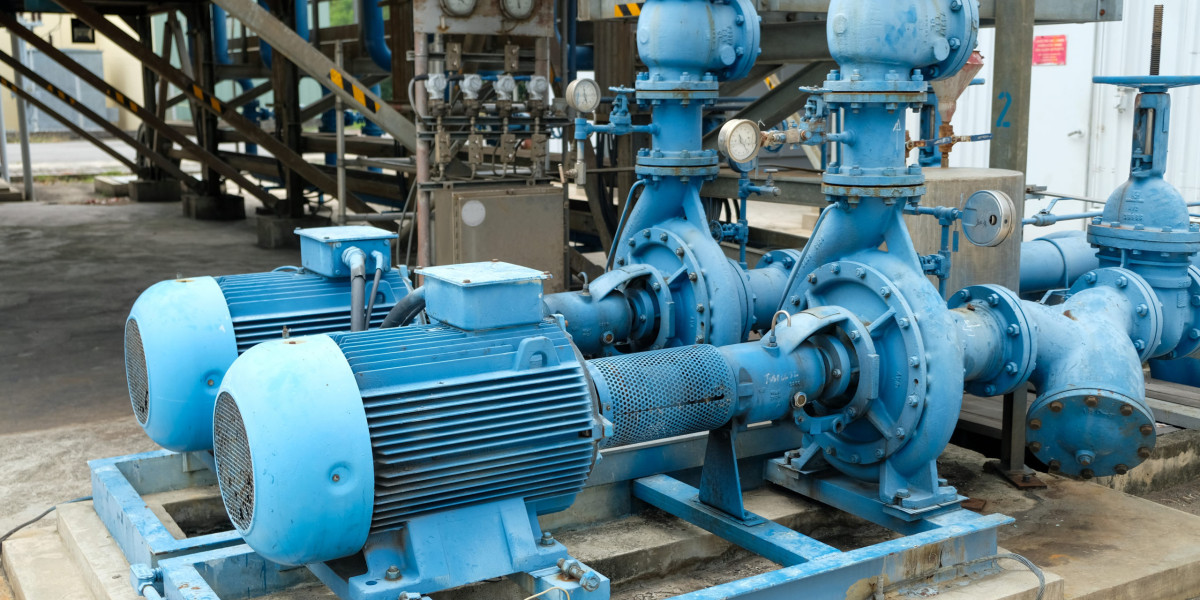An industrial centrifugal compressor is a dynamic machine designed to compress gases by accelerating them with a rotating impeller and then converting that velocity into pressure. These compressors are widely used in heavy industries due to their efficiency, high flow capacity, and ability to operate continuously under demanding conditions.
How an Industrial Centrifugal Compressor Works
The working principle of an industrial centrifugal compressor revolves around the conversion of kinetic energy into pressure energy:
Gas enters the center (eye) of the spinning impeller.
The impeller blades rotate, forcing the gas outward at high speed.
In the diffuser section, the gas slows down, and its velocity energy is converted into pressure.
The compressed gas is then discharged to the desired system or storage.
This process allows for a smooth, pulse-free gas flow, making it ideal for industrial applications.
Components of an Industrial Centrifugal Compressor
Impeller: The rotating blade that imparts energy to the gas.
Diffuser: Slows the gas and increases pressure.
Volute (Casing): Collects the compressed gas and directs it to the discharge port.
Bearings and Shaft: Support and rotate the impeller with high precision.
Seals: Prevent gas leaks and protect internal components.
Types of Industrial Centrifugal Compressors
Single-Stage Compressors
Suitable for low-to-medium pressure needs.
Used in HVAC systems, general manufacturing, and air compression.
Multi-Stage Compressors
Include multiple impellers for higher pressure.
Used in oil refineries, gas pipelines, and petrochemical plants.
Oil-Free Compressors
Ideal for applications where air purity is critical.
Common in pharmaceuticals, electronics, and food processing.
Applications of an Industrial Centrifugal Compressor
Petrochemical and Chemical Processing: Compressing hydrogen, oxygen, and other process gases.
Natural Gas Industry: Transporting and storing natural gas under pressure.
Power Plants: Supplying air for combustion and cooling systems.
Air Separation Units: Producing nitrogen, oxygen, and argon.
Steel and Cement Plants: Supporting combustion and drying operations.
Advantages of an Industrial Centrifugal Compressor
✅ High Flow Rates: Ideal for moving large volumes of gas.
✅ Energy Efficient: Performs well at constant load.
✅ Compact Design: High output with relatively small footprint.
✅ Continuous Operation: Built for 24/7 industrial use.
✅ Low Vibration: Smooth operation reduces wear and noise.
Limitations of an Industrial Centrifugal Compressor
❌ Higher Initial Cost: Advanced design and installation may be expensive.
❌ Sensitive to Flow Variations: Best suited for steady conditions.
❌ Complex Maintenance: Requires specialized technicians and tools.
❌ Not Ideal for Low Flow Rates: Designed primarily for high-volume systems.
Conclusion
The industrial centrifugal compressor is an essential component in modern industry, capable of handling high-capacity gas compression with precision and reliability. Whether in refining, energy, or manufacturing sectors, this machine supports critical processes that demand efficient, uninterrupted airflow. Investing in a high-quality industrial centrifugal compressor ensures productivity, safety, and long-term operational success.







